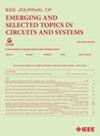Re_useVFL:使用梯度稀疏化重用基于参数的可验证联合学习并保护隐私
IF 3.8
2区 工程技术
Q2 ENGINEERING, ELECTRICAL & ELECTRONIC
IEEE Journal on Emerging and Selected Topics in Circuits and Systems
Pub Date : 2024-09-19
DOI:10.1109/JETCAS.2024.3463738
引用次数: 0
摘要
联合学习(FL)在工业物联网(IIoT)中展现出了巨大的潜力,因为它允许多个机构在不共享本地数据的情况下合作训练一个全球模型。然而,FL 系统仍然存在许多隐私和安全问题。负责聚合模型参数的云服务器可能是恶意的,它可能会发布被操纵的聚合结果,从而发起恶意攻击。此外,工业代理可能会提供不完整的参数,从而对全局模型的性能产生负面影响。为了解决这些问题,我们引入了 Re_useVFL,这是一种高效的隐私保护全流程 FL 验证方案。它集成了基于 BLS 的签名验证、自适应梯度稀疏化(AdaGS)和多密钥 CKKS 加密(MK-CKKS)。我们的方案确保了代理上传参数的完整性、云服务器聚合结果的正确性以及分布式结果的一致性验证,从而为整个 FL 流程提供了全面的验证。即使有些代理在计算过程中退出,它也能保持验证的准确性。AdaGS 算法通过优化参数稀疏化和重复使用,显著降低了验证开销。此外,该算法还采用了 MK-CKKS 来保护代理隐私,防止代理与服务器串通。我们在三个数据集上进行的实验证实,与现有方法相比,Re_useVFL 能够实现更低的验证资源开销,这证明了它的实用有效性。本文章由计算机程序翻译,如有差异,请以英文原文为准。
Re_useVFL: Reuse of Parameters-Based Verifiable Federated Learning With Privacy Preservation Using Gradient Sparsification
Federated learning (FL) exhibits promising potential in the Industrial Internet of Things (IIoT) as it allows multiple institutions to collaboratively train a global model without sharing local data. However, there are still many privacy and security concerns in FL systems. The cloud server responsible for aggregating model parameters may be malicious, and it may distribute manipulated aggregation results that could launch nefarious attacks. Additionally, industrial agents may provide incomplete parameters, negatively impacting the global model’s performance. To address these issues, we introduce Re_useVFL, an efficient privacy-preserving full-process FL verification scheme. It integrates BLS-based signature verification, adaptive gradient sparsification (AdaGS), and Multi-Key CKKS encryption (MK-CKKS). Our scheme ensures the integrity of agents-uploaded parameters, the correctness of the cloud server’s aggregation results, and the consistency verification of distributed results, thereby providing comprehensive verification across the entire FL process. It also maintains validation accuracy even with some agents dropout during computation. The AdaGS algorithm notably reduces validation overhead by optimizing parameter sparsification and reuse. Additionally, employing MK-CKKS to protect agents privacy and prevent agent and server collusion. Our experiments on three datasets confirm that Re_useVFL achieves lower validation resource overhead compared to existing methods, demonstrating its practical effectiveness.
求助全文
通过发布文献求助,成功后即可免费获取论文全文。
去求助
来源期刊

IEEE Journal on Emerging and Selected Topics in Circuits and Systems
ENGINEERING, ELECTRICAL & ELECTRONIC-
CiteScore
8.50
自引率
2.20%
发文量
86
期刊介绍:
The IEEE Journal on Emerging and Selected Topics in Circuits and Systems is published quarterly and solicits, with particular emphasis on emerging areas, special issues on topics that cover the entire scope of the IEEE Circuits and Systems (CAS) Society, namely the theory, analysis, design, tools, and implementation of circuits and systems, spanning their theoretical foundations, applications, and architectures for signal and information processing.
 求助内容:
求助内容: 应助结果提醒方式:
应助结果提醒方式:


